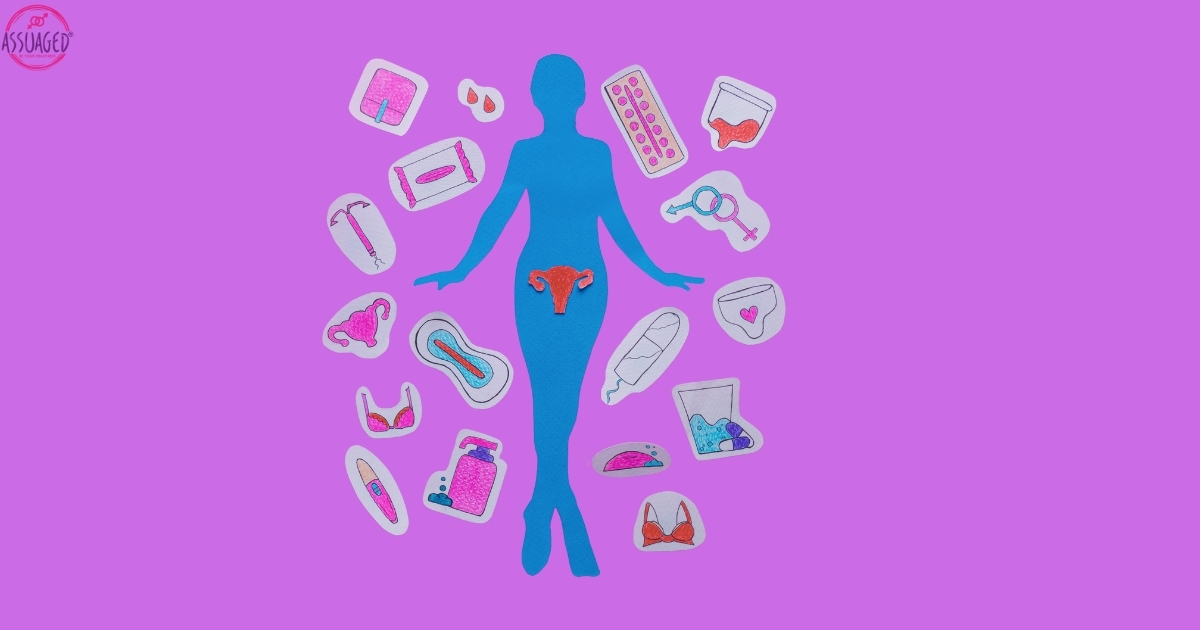Uncover the critical role nutrition plays in maintaining optimal menstrual health. Explore how dietary choices impact hormonal balance and alleviate menstrual symptoms. Join us to learn how a balanced diet supports women's well-being during menstruation.
Understanding Menstrual Health
Menstruation is a natural phenomenon experienced by women, marking their reproductive cycle. While it's a normal bodily function, many women face challenges related to menstrual health, including painful cramps, irregular cycles, and mood swings.
However, nutrition plays a crucial role in alleviating these issues and promoting overall menstrual well-being. In this article, we delve into the relationship between nutrition and menstrual health, exploring dietary strategies to optimize this aspect of women's lives.
It's important to note that not all individuals experiencing menstruation identify as female. Transgender men and genderqueer individuals with uteruses, vaginas, fallopian tubes, and ovaries may also have periods. For some trans individuals, menstruation can be challenging as it can highlight a disconnect between their physical body and gender identity, known as gender dysphoria.
Different approaches, such as puberty blockers or hormone therapy, can be utilized to manage menstruation for trans individuals. Testosterone therapy can stop periods, but they may return if treatment is stopped. Hormonal changes during therapy can result in variations in menstrual cycles, such as lighter or irregular periods. Seeking help from trans-friendly healthcare providers and utilizing available resources can assist individuals in navigating menstruation and gender dysphoria.[1]

Menstrual health encompasses various factors, including the regularity and duration of menstrual cycles, the severity of symptoms like cramps and mood swings, and overall reproductive well-being. Factors such as hormonal balance, nutrient status, stress levels, and lifestyle choices significantly influence menstrual health. [2]
Essential Nutrients for Menstrual Health
-
Iron: Iron deficiency can exacerbate menstrual symptoms like fatigue and weakness due to blood loss during menstruation. Consuming iron-rich foods such as lean meats, beans, lentils, spinach, and fortified cereals can help replenish iron stores and alleviate symptoms.[3]
-
Calcium and Vitamin D: Adequate calcium and vitamin D intake are crucial for maintaining bone health, especially important considering the hormonal fluctuations during the menstrual cycle. Dairy products, leafy greens, fortified plant-based milk, and sunlight exposure are excellent sources of these nutrients.[4]
-
Omega-3 Fatty Acids: Omega-3 fatty acids possess anti-inflammatory properties that can help reduce menstrual pain and inflammation. Fatty fish like salmon, walnuts, flaxseeds, and chia seeds are rich sources of omega-3s and should be included in the diet regularly. [5]
-
Magnesium: Magnesium plays a role in muscle relaxation and may help alleviate menstrual cramps. Incorporating magnesium-rich foods such as nuts, seeds, whole grains, and dark leafy greens can be beneficial.[6]
-
B Vitamins: B vitamins, particularly B6 and B12, are essential for hormone regulation and energy metabolism. Foods like poultry, fish, eggs, dairy, leafy greens, and fortified cereals can provide these vital nutrients.[7]
Dietary Strategies for Enhancing Menstrual Health
-
Balanced Diet: Emphasize a balanced diet comprising whole grains, lean proteins, healthy fats, fruits, and vegetables to ensure adequate intake of essential nutrients crucial for menstrual health.
-
Hydration: Staying hydrated is essential for overall health and can help alleviate bloating and water retention commonly experienced during menstruation. Aim to drink plenty of water throughout the day, and include hydrating foods like cucumbers, watermelon, and oranges in your diet. [8]
-
Mindful Eating: Practice mindful eating by paying attention to hunger and fullness cues and choosing nourishing foods that support menstrual health. Avoid excessive consumption of processed foods, sugary snacks, and caffeine, which can exacerbate menstrual symptoms.
-
Herbal Teas: Certain herbal teas like chamomile, ginger, and peppermint have soothing properties that can help alleviate menstrual cramps and promote relaxation. Incorporate these teas into your routine for added comfort during menstruation.[9]
-
Limiting Alcohol and Caffeine: Excessive alcohol and caffeine consumption can disrupt hormone balance and exacerbate menstrual symptoms. Limit intake of these substances, especially during the menstrual period, to support hormonal equilibrium.[10] [11]

Lifestyle Factors for Menstrual Health
In addition to nutrition, several lifestyle factors can influence menstrual health positively. Regular exercise, stress management techniques such as yoga and meditation, adequate sleep, and maintaining a healthy weight contribute to overall well-being and can help regulate menstrual cycles.
Conclusion
Optimizing menstrual health involves a holistic approach that includes nutrition, lifestyle modifications, and stress management. By prioritizing nutrient-rich foods, staying hydrated, and adopting healthy lifestyle habits, women can support their menstrual health and navigate their cycles with greater ease and comfort. Consulting with healthcare professionals or registered dietitians can provide personalized guidance tailored to individual needs, ensuring optimal menstrual well-being for women of all ages.
For more information about your menstrual cycle, visit The Office for Women's Health















